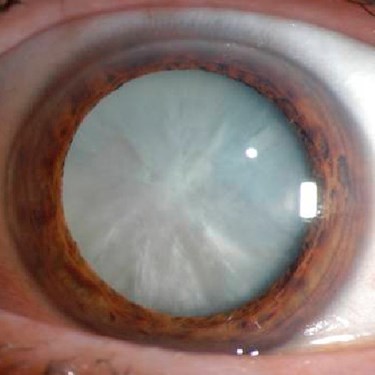Cataracts


What are cataracts?
Cataracts are a very common condition where the natural crystalline lens of the eye becomes cloudy over time. This cloudiness prevents light from properly reaching the retina, causing decreased vision. It is the main cause of vision impairment and vision loss around the world.
Symptoms
Cataracts develop over time and often occur in both eyes, though each eye may be affected differently.
Symptoms of cataracts may include:• Blurry or foggy vision
• Double vision
• Trouble seeing in low or very bright lighting
• Bright light sources may be dazzling or uncomfortable to look at
• Colours appear faded with a yellow or brownish tinge
Common Causes
Cataracts usually develop as you age, but there are also other factors that can increase the risk of developing cataracts, including:
• Smoking
• Diabetes
• Heavy alcohol consumption
• Exposure to UV rays, especially without protective eyewear like sunglasses
• Using certain types of medication over a certain period of time
• Previous eye injury or surgery
Treatment
If you have a mild form of cataracts, wearing glasses with different strengths or brighter reading lights may help with blurred vision. However, most cataracts do worsen over time, which will require surgery. If your optometrist detects cataracts during an eye exam, they will refer you to an ophthalmologist to further assess the cataracts and decide on a treatment plan.
Cataracts surgery
What does cataract surgery involve?
An ophthalmologist will determine if you’re a good candidate for cataract surgery. Most cataract operations are performed using a local anesthetic. This means that you’ll be awake, but you shouldn’t feel any pain. They will make a tiny incision to remove the cataract and will normally replace it with a bionic lens so that you can see clearly after the eye has fully healed. The surgery typically takes around 15 20 minutes and won’t usually require sutures.
What are the risks of cataract surgery?
Cataract surgery is generally a very successful procedure, and the majority of patients are happy with the results. But as with all surgery, there are risks involved and you shouldn’t have the operation unless you feel it is right for you. Your ophthalmologist will walk you through all the benefits and risks for your case and also provide you with a management plan after surgery to make sure your eyes heal properly.




